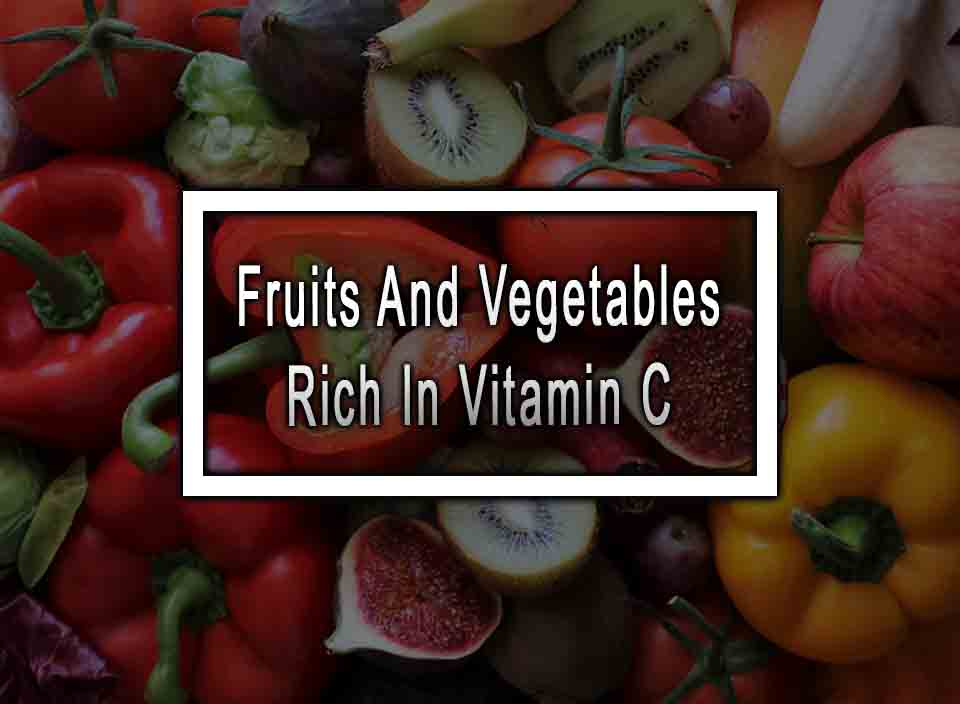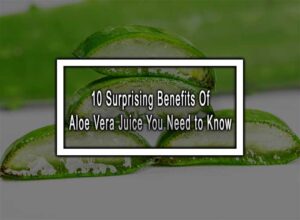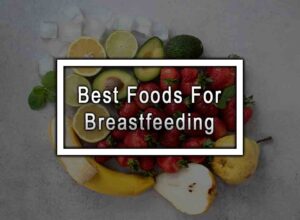Here Are The Fruits And Vegetables That Rich In in vitamin C
Vitamin C is an essential nutrient for our body, as it plays a vital role in maintaining a strong immune system, healthy skin, and proper functioning of the body. It is an antioxidant that helps protect our cells from damage caused by free radicals. Our body cannot produce vitamin C on its own, so we need to obtain it through our diet. Fruits and vegetables are the best sources of vitamin C, and we must consume them daily to maintain optimal health. In this article, we will discuss fruits and vegetables that are rich in vitamin C.
Citrus Fruits

Citrus fruits are the most common fruits that come to our minds when we think of vitamin C. Oranges, lemons, grapefruits, limes, and tangerines are some of the citrus fruits that are rich in vitamin C. A medium-sized orange contains around 70mg of vitamin C, which is more than the daily recommended intake of 60mg. Citrus fruits are also rich in fiber, folate, and potassium, which makes them a healthy addition to our diet.
Kiwi

Kiwi is a small fruit with a fuzzy brown exterior and bright green flesh inside. It is a great source of vitamin C, with one medium-sized kiwi containing around 70mg of vitamin C. Kiwis are also rich in fiber, potassium, and vitamin K, which makes them a nutritious addition to our diet.
Strawberries

Strawberries are a delicious and nutritious fruit that is rich in vitamin C. One cup of sliced strawberries contains around 85mg of vitamin C, which is more than the daily recommended intake. Strawberries are also rich in fiber, folate, and antioxidants, which makes them a healthy addition to our diet.
Papaya
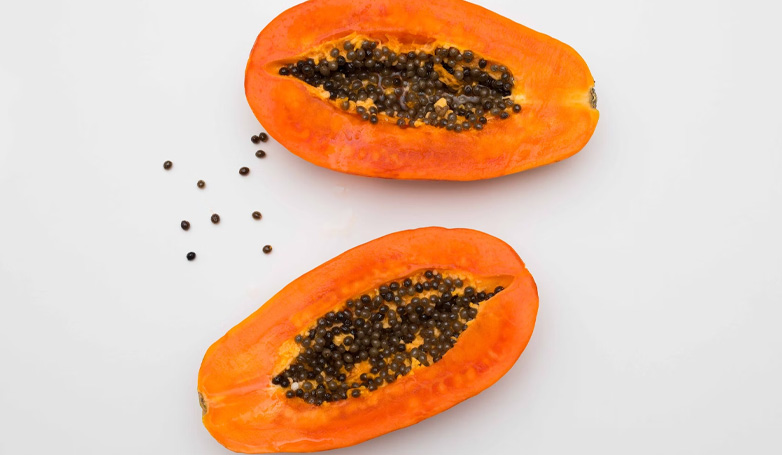
Papaya is a tropical fruit that is rich in vitamin C, with one medium-sized papaya containing around 95mg of vitamin C. Papayas are also rich in fiber, potassium, and vitamin A, which makes them a nutritious addition to our diet. Papayas also contain an enzyme called papain, which aids in digestion and reduces inflammation.
Bell Peppers
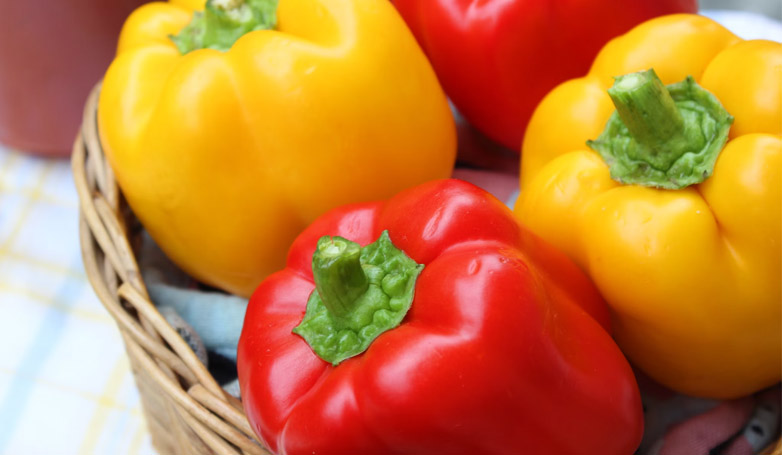
Bell peppers are a colorful and nutritious vegetable that is rich in vitamin C. One medium-sized bell pepper contains around 150mg of vitamin C, which is more than twice the daily recommended intake. Bell peppers are also rich in fiber, vitamin A, and potassium, which makes them a healthy addition to our diet.
Broccoli
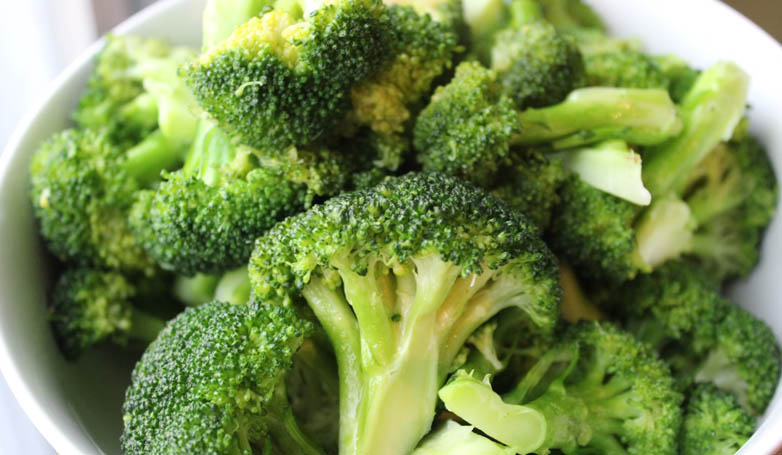
Broccoli is a cruciferous vegetable that is rich in vitamin C, with one cup of chopped broccoli containing around 81mg of vitamin C. Broccoli is also rich in fiber, vitamin K, and folate, which makes it a nutritious addition to our diet. Broccoli also contains sulforaphane, a compound that has anti-inflammatory and anti-cancer properties.
Brussels Sprouts
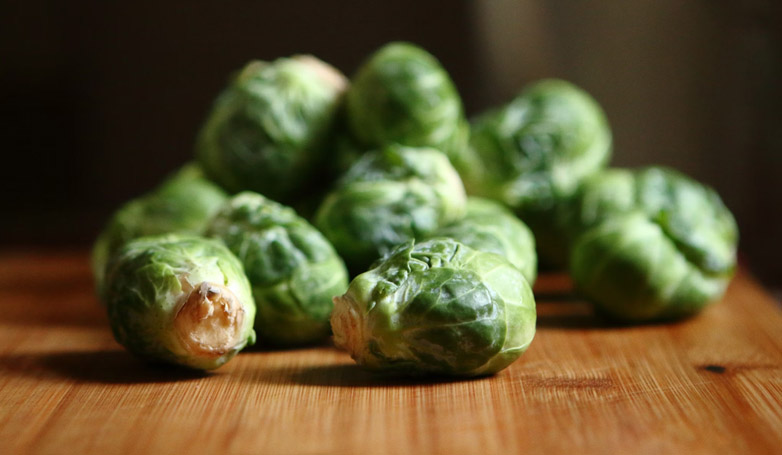
Brussels sprouts are a cruciferous vegetable that is rich in vitamin C, with one cup of cooked Brussels sprouts containing around 96mg of vitamin C. Brussels sprouts are also rich in fiber, vitamin K, and folate, which makes them a nutritious addition to our diet. Brussels sprouts also contain glucosinolates, a compound that has anti-cancer properties.
Pineapple
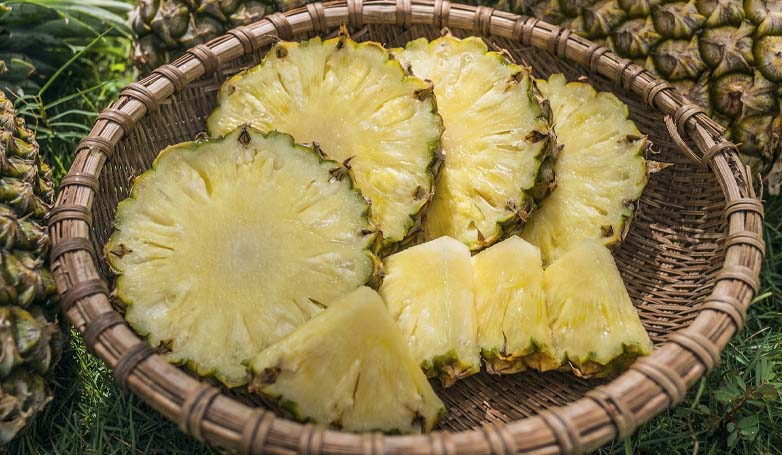
Pineapple is a tropical fruit that is rich in vitamin C, with one cup of pineapple chunks containing around 78mg of vitamin C. Pineapples are also rich in fiber, manganese, and bromelain, which aid in digestion and reduce inflammation.
Fruits and vegetables: Your Tasty Ticket to C-ing Health Improvements!
In conclusion, vitamin C is an essential nutrient that plays a vital role in maintaining optimal health. Fruits and vegetables are the best sources of vitamin C, and we must consume them daily to maintain a strong immune system, healthy skin, and proper functioning of the body. Citrus fruits, kiwi, strawberries, papaya, broccoli, Brussels sprouts, and pineapple are some of the fruits and vegetables that are rich in vitamin C. Incorporating these fruits and vegetables into our daily diet can help us meet our daily recommended intake of vitamin C and lead a healthy and active life.
Fruits And Vegetables Rich In Vitamin C FAQs
Here are the most common questions about fruits and vegetables rich in Vitamin C.
1. Why is vitamin C essential for the body?
Vitamin C is essential for the body as it helps in the growth and repair of tissues, aids in the absorption of iron, supports the immune system, and acts as an antioxidant, protecting the body against harmful free radicals.
2. What are the recommended daily intake levels of vitamin C?
The recommended daily intake levels of vitamin C for adults are 75–90 milligrams per day. However, it may vary depending on factors such as age, sex, and overall health.
3. How can I include more vitamin C in my diet?
To include more vitamin C in your diet, you can add fruits and vegetables rich in vitamin C to your meals or have them as snacks. You can also take vitamin C supplements under the guidance of a healthcare professional.
4. Can consuming too much vitamin C be harmful?
Consuming too much vitamin C can cause digestive issues such as diarrhea, nausea, and stomach cramps. Consuming more than the recommended daily intake levels for a long time can also lead to more severe health issues, such as kidney stones.
5. How does cooking affect the vitamin C content of vegetables and fruits?
Cooking can affect the vitamin C content of vegetables and fruits. It can lead to some of the vitamin C being lost. Boiling or steaming methods can cause a higher loss of vitamin C compared to roasting or stir-frying.
6. Are there any sources of vitamin C that should be avoided?
It can be best to avoid taking vitamin C supplements in large amounts without medical supervision as it can lead to health problems. Consuming fruit juices with added sugars or added preservatives can also lead to health issues and should be avoided.
7. Can vitamin C help prevent common colds or flu?
Vitamin C may help prevent common colds or flu, but it does not completely prevent them. It can, however, help boost the immune system and shorten the duration of these illnesses.

